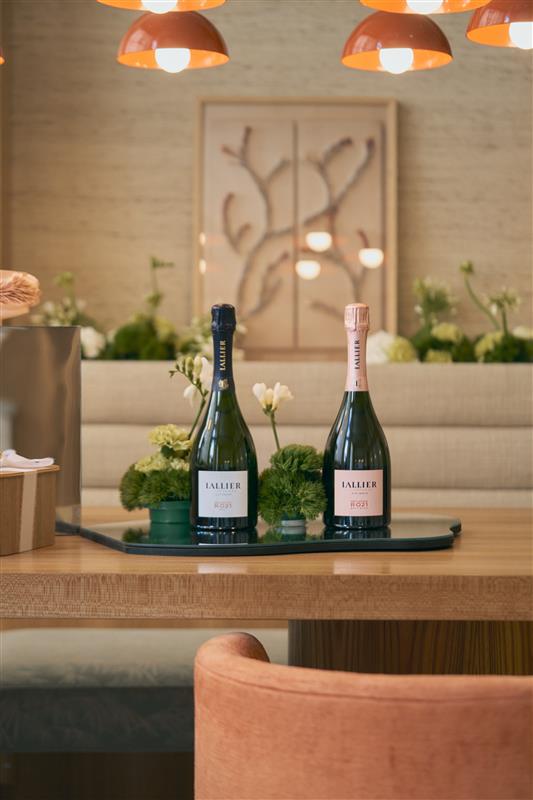Why global travel retail is important for the drinks sector
With traveller numbers set to rise above pre-Covid levels, the drinks industry is now assessing the potential of global travel retail in a new way. Jessica Mason reports.

In what marked Erik Juul-Mortensen’s final year at the helm of the Tax Free World Association (TFWA) as president, the drinks industry’s keenest players assembled for what was rumoured to be the biggest TFWA World Exhibition & Conference that the Palais du Festival in Cannes had ever seen.
Addressing attendees, Juul-Mortensen highlighted how businesses needed to take note because passenger numbers had grown 11.5% in the past year and traveller numbers were set to rise to 29% above pre-Covid levels by 2028. Alongside this, he urged brand owners to look at how they formed their narrative and ability to “tell a story” and stay “relevant”. Additionally, referencing data from ACI World, Juul-Mortensen how the results showed that traveller numbers were forecast to reach almost 25 billion by 2052.
In the opening address to the conference, Juul-Mortensen said: “Brand experiences in duty free and travel retail must move beyond [and] tell a story that’s relevant to their consumer lifestyle. That’s not easy in a market where retailers and brands have limited space.”
Echoing this in her keynote speech at the conference, Sam Rad, anthropologist, futurist, author and CEO of meta media studio Radical Next also had advice on emerging trends and changes in consumption behaviour.
Rad said: “Travel retail is a transformative phase and it’s no longer just about selling goods — it’s about delivering immersive, customised experiences. Travellers want spaces that reflect their values, sustainability, individuality and wellbeing.”
In a message that drinks industry sources admitted that they had taken on board, Rad’s warning had been clear: “We’ll see a shift from ‘supply chains’ to ‘demand chains’ and brands becoming retailers with onsite manufacturing and personalisation.”
Rad also highlighted how virtual reality (VR) and augmented reality (AR) alongside artificial intelligence (AI) would also play a role in the future of the sector, but reiterated that despite advancements, consumers would always look for authenticity. She added: “The future of travel is profoundly human. Technology will augment, enhance and elevate what we do, but it will not replace the fundamental human need for connection, discovery and experience. Yes, we will face challenges – shifting consumer habits, geopolitical instability, digital distractions – but at the end of the day, humans will always seek authentic experiences, whether that is in a bustling airport lounge or aboard a cruise ship floating between continents.”
Partner Content
Describing how the personalisation method has served the company well, Giacomo Marzotto export director at Santa Margherita Wine Group, for Santa Margherita, told db: “For us, the focus is always on personalisation and exclusivity. We have just refreshed our Pinot Grigio personalisation. Our other products are doing really very well, especially now that we’re seeing back a little bit more from Asia into this part of the world.”
Marzotto reiterated: “This is what we believe in: Personalisation and having travel exclusives as a way of giving people something real and memorable to take away with them.”
Also speaking to db about the need to connect with consumers and give them the element of choice and autonomy to make their own minds up, Diverse Flavours managing director Anthony Budd said: “One of the key messages this year is about the consumer”. He pointed out how “there are lots of very different types of consumer” but suggested that “what they are looking for is choice and experiences.”
Budd observed that in many ways, despite the advancement of technology or the sector, people still wanted to travel to see things what were natural and wanted to make choices as people and this was an integral lesson for any drinks company. That despite any forward moves, there is often a renaissance for the simple things that are good.
He explained this by echoing how tourist looked to replicate moments from their memories and experiences in a bid to feel alive. He said: “Maybe they’re looking for brands that represent an experience they had. So maybe they visited Cape Town, or they visited Tokyo or Japan. These are destination drinks because if you look to South Africa and Japan, both countries have been heavily visited in the last 12 months to 24 months since Covid. Both countries are seeing projections on or trajectories of their tourism numbers going through the roof, and they both have currencies that are weak, so they’re really destinations that people want to go to – Japan because of the culture, the food, or experience of eating, drinking, and, for South Africa, it is all about nature and the natural landscape.”
As the exhibition closed for the year, Juul-Mortensen admitted that “duty free and travel retail is a marketplace that has changed constantly and TFWA must change with it.”
Brown-Forman GTR vice president and director Nick Mogford additionally reiterated how the GTR platform continued to be hugely crucial, relevant and attractive for drinks companies such as Brown-Forman due to how the sector allowed it to “connect deeply” with consumers.
Mogford insisted that, because of this, the TFWA show was fundamental to its future because it allowed the business “to connect deeply with partners and customers while showcasing how our brands enhance and elevate the global travel experience”.
Related news
Karuizawa Distillers aspires to be major Japanese whisky player
Tradition and support offer solutions to Japan's rice crisis
Asahi says 1.5 million customers' data at risk following cyber-attack




